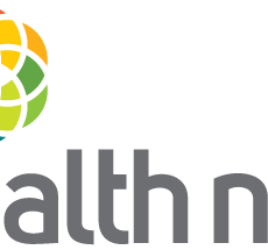
Peer Support Programs: A Missing Piece and Perfect Complement to Population Health Strategies
Interview of Dr. Marcus Thygeson, M.D., M.P.H. by Adam Kaufman
As defined on Wikipedia:
Peer support occurs when people provide knowledge, experience, emotional, social or practical help to each other. It commonly refers to an initiative consisting of trained supporters… and can take a number of forms such as peer mentoring, reflective listening (reflecting content and/or feelings), or counseling… Peer support is distinct from other forms of social support in that the source of support is a peer, a person who is similar in fundamental ways to the recipient of the support; their relationship is one of equality.
Evidence-based and proven-effective Peer Support Programs warrant consideration to be part of every population health initiative and provide a strong complement to other strategies such as remote monitoring and lifestyle coaching. I had the chance to speak with Dr. Marcus Thygeson, M.D., M.P.H. of Bind Health to get his views on the role of Peer Support in promoting health.
I catch up with Dr. Thygeson early evening as he is walking in Minneapolis from the Bind offices. “How do you see peer support programs complementing broader population health strategies?” I ask.
Dr. Thygeson: “There are two fundamental ways Peer Support Programs complement the ecosystem of population health strategies. First, different people want to engage differently – meaning some love the idea of a 1:1 relationship with a healthcare professional, some want primarily self-paced and self-directed services through an app, and there are many who love the idea of interacting with peers and prefer to engage with those like them around the more personal challenges and opportunities in their health. Peer Support Programs are a necessary complement to ensure a service mix that has something for everyone.”
And I start in on a new question, stopping as I realize Dr. Thygeson is continuing. “And you know Adam, there is something very important in this. It’s not only that different people need or want to engage differently, but often the same person may want different types of engagement and support at different times. Life changes impact health and chronic conditions, and needs and preferences change. I’ve seen people who were engaging perfectly with, let’s say a coach, realize that what they needed at that moment in their journey is to engage with peers. As the expression would say – different strokes for different folks AND also different strokes for the same folk at maybe different times.”
He continues. “And I should add that Peer-led groups offer a very distinct way to engage. Not only is it the peer-support, but the group dynamic is uncommon in our more clinically-oriented services like remote monitoring or nurse-based condition management. A program of group-based peer support really can help ensure something for everyone.”
“And the second way these programs are complementary?” I ask.
“Second,” Dr. Thygeson continues, “People could be well served by remote monitoring, for example, but that type of program typically doesn’t address a variety of important elements required to maximize one’s health. Some examples: Peer-based programs, as you know Adam, can help individuals increase their self-efficacy — the confidence needed to set and accomplish a goal. They can help patients strategize ways to overcome their unique barriers and increase adherence with their prescribed medical regimen. Peer support can also help individuals explore strategies which improve their relationships with family, friends, co-workers, and healthcare providers.”
Dr. Thygeson goes on to say, “Peer Support Programs complement and extend the approach and focus of clinically focused population health programs. The wisdom and support one receives from peers does not contradict the information provided by a healthcare professional. Rather, peer interactions help the person clarify and put the information into the context of their everyday lives.”
Dr Thygeson concludes “It’s not always a case of A or B alone but often A+B can be better. This is largely the case for coupling Peer Support Programs with things like nurse-based condition management.”
About Dr. Macrus Thygeson
Marcus Thygeson is Chief Health Officer and leads the clinical team at Bind, a health plan administrator for self-funded employers in the United States. Bind provides a unique healthcare benefit we call “On Demand Health Insurance” that maps coverage to high-value care by condition, enables dramatically better cost-transparency for members, and yields lower healthcare costs for both employers and members. Prior to Bind, Marcus served in a variety of leadership roles including Chief Health Officer at Blue Shield of California, and President of the Center for Healthcare Innovation at Allina Health. He has extensive experience leading teams to develop and implement health service innovations that improve health outcomes and patient engagement.
Marcus serves on the National Committee for Quality Assurance, Committee for Performance Measurement, and has studied and published on a variety of health service research topics including shared decision making, care management methods, worksite and community wellness, applications of complexity science in health care, and comparative configurational methods.
Marcus received a B.S. summa cum laude from the University of California at Davis, an M.D. from Harvard Medical School, and an M.P.H. from the University of Minnesota. Marcus is Board Certified in Internal Medicine and Gastroenterology.


